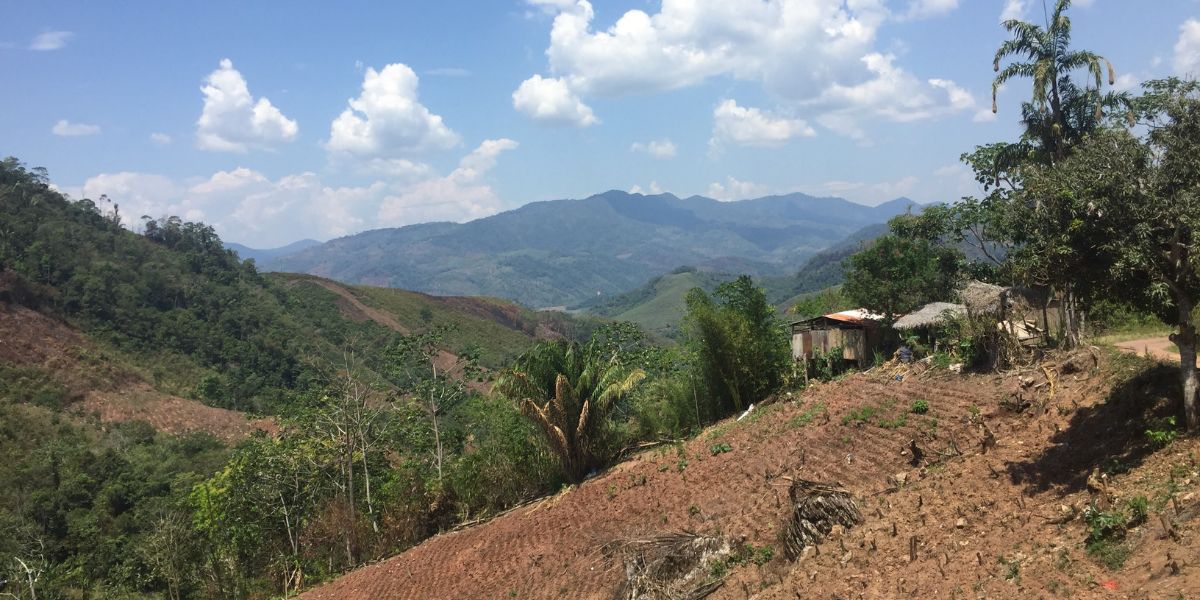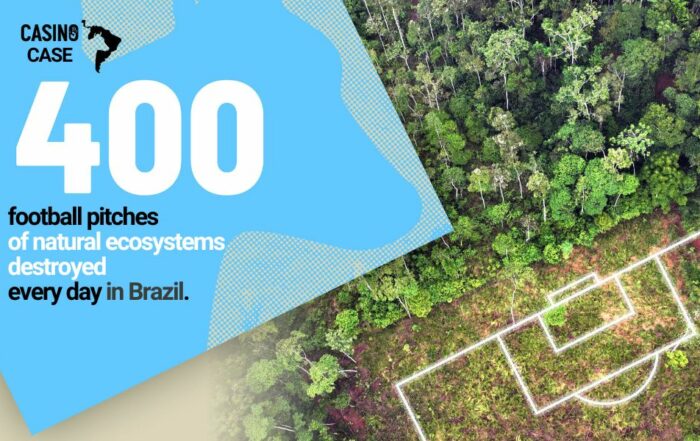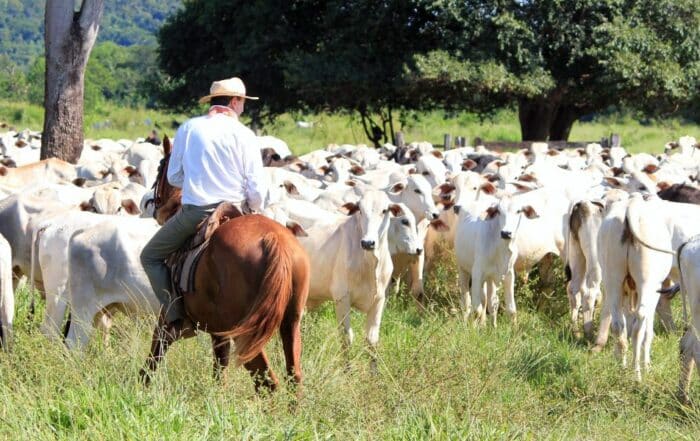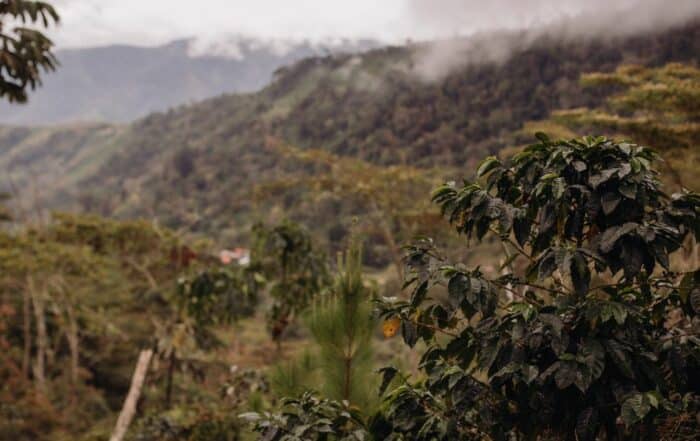In a fervent opposition, our organization strongly opposes the proposed amendment to Law 29763, commonly known as the Forest and Wildlife Law, by certain deputies of the Republic of Peru. The approval of this law would represent a significant setback in our ongoing efforts to protect Peru’s Amazonian forests. We aim to clearly explain the reasons behind our stance:
Safeguarding Our Forests and Wildlife: Exploring the Significance of Forest and Wildlife Law
The Forest and Wildlife Law (Law No. 29763) in Peru establishes that forest zoning must be approved by the Ministry of the Environment (MINAM), responsible for ensuring the sustainability of natural resources. This law defines the uses of forest lands, taking into account technical, social, and economic aspects. To obtain land ownership, it is necessary to request authorization that determines the primary use of each plot, such as agriculture, forest conservation, protected areas, etc. Currently, land ownership can only be granted if the primary use is known, and there are rules governing any subsequent modifications.
Obscure Motivations Behind Forest and Wildlife Law Modification
The proposed amendment to the Forest Law aims to promote development through forest zoning in different regions of the country. This amendment proposes to include an additional provision to modify the current classification regime of lands based on their primary use, as well as the rules allowing land use changes.
Under the current law, the approval of forest zoning falls under the jurisdiction of the Ministry of the Environment (MINAM), responsible for ensuring the sustainability of natural resources in Peru. However, with the proposed modification, the Ministry of Agrarian Development and Irrigation (MIDAGRI) would become responsible for validating forest zoning.
Endangered Amazon Forests: The Detrimental Consequences of Legislative Changes
MIDAGRI, which is responsible for the development and promotion of agricultural and livestock activities in Peru, does not comprehensively consider biodiversity and ecosystems. In the Peruvian Amazon region alone, approximately 9 million hectares have been deforested to expand agricultural land. Without an entity responsible for forest protection and conservation promotion, forest zoning would be limited to production criteria.
Granting land titles without prior evaluation or study would pave the way for agricultural expansion over forests. This change in land use would equate to deforestation, resulting in approximately 150,000 hectares lost annually. Without a technical study, the right to convert forest areas into agricultural land would be granted.
Threats to Indigenous Peoples and Violations of Rights: An Alarming Situation
Indigenous peoples are vulnerable and could see their lands affected. The law allows for the formalization of land titles in all untitled areas. Several indigenous territories currently in the process of formalization could be impacted by the presence of individuals owning land and engaging in agricultural activities. Modifying the forest law would facilitate land trafficking in the Amazon.
Indigenous peoples have not been consulted at any point (unlike their participation in the creation of the forest law). Furthermore, as explained in a previous article, Peru has not ratified the Escazú Agreement. This agreement aims to ensure access to information and citizen participation in environmental matters, thereby strengthening the role of indigenous populations. Modifying the forest law would be an additional action that ignores the rights of indigenous communities and limits their ancestral role in the conservation of the Amazon forest.
Incoherent Modification Contradicting International Agreements and Treaties
Starting in 2024, a new European zero-deforestation regulation will come into effect, aiming to limit the importation of agricultural raw materials from deforested plots after 2020. This poses a major challenge for Peru and several producing countries. Opening up the possibility of expanding agricultural areas into Amazonian territories would weaken Peru’s image in the international trade scene.
Chronology
As a society, it is crucial that we become aware of the importance of preserving our environment and work together to protect our natural resources. It is now time to decide whether we want to build a sustainable future or destroy the remnants of our precious ecosystems. Envol Vert joins other civil society organizations and eminent authorities such as the Ministry of the Environment (MINAM), the Forest and Wildlife Service (SERFOR), the Ministry of Agrarian Development and Irrigation (MIDAGRI), and the Ombudsman in firmly expressing our opposition to these legislative proposals that would have a severe impact on the Peruvian Amazon forest and its communities. We demand that any consideration of amending the Forest and Wildlife Law be completely dismissed. It is our responsibility to protect and preserve the biodiversity of our country for present and future generations.
In a fervent opposition, our organization strongly opposes the proposed amendment to Law 29763, commonly known as the Forest and Wildlife Law, by certain deputies of the Republic of Peru. The approval of this law would represent a significant setback in our ongoing efforts to protect Peru’s Amazonian forests. We aim to clearly explain the reasons behind our stance:
Safeguarding Our Forests and Wildlife: Exploring the Significance of Forest and Wildlife Law
The Forest and Wildlife Law (Law No. 29763) in Peru establishes that forest zoning must be approved by the Ministry of the Environment (MINAM), responsible for ensuring the sustainability of natural resources. This law defines the uses of forest lands, taking into account technical, social, and economic aspects. To obtain land ownership, it is necessary to request authorization that determines the primary use of each plot, such as agriculture, forest conservation, protected areas, etc. Currently, land ownership can only be granted if the primary use is known, and there are rules governing any subsequent modifications.
Obscure Motivations Behind Forest and Wildlife Law Modification
The proposed amendment to the Forest Law aims to promote development through forest zoning in different regions of the country. This amendment proposes to include an additional provision to modify the current classification regime of lands based on their primary use, as well as the rules allowing land use changes.
Under the current law, the approval of forest zoning falls under the jurisdiction of the Ministry of the Environment (MINAM), responsible for ensuring the sustainability of natural resources in Peru. However, with the proposed modification, the Ministry of Agrarian Development and Irrigation (MIDAGRI) would become responsible for validating forest zoning.
Endangered Amazon Forests: The Detrimental Consequences of Legislative Changes
MIDAGRI, which is responsible for the development and promotion of agricultural and livestock activities in Peru, does not comprehensively consider biodiversity and ecosystems. In the Peruvian Amazon region alone, approximately 9 million hectares have been deforested to expand agricultural land. Without an entity responsible for forest protection and conservation promotion, forest zoning would be limited to production criteria.
Granting land titles without prior evaluation or study would pave the way for agricultural expansion over forests. This change in land use would equate to deforestation, resulting in approximately 150,000 hectares lost annually. Without a technical study, the right to convert forest areas into agricultural land would be granted.
Threats to Indigenous Peoples and Violations of Rights: An Alarming Situation
Indigenous peoples are vulnerable and could see their lands affected. The law allows for the formalization of land titles in all untitled areas. Several indigenous territories currently in the process of formalization could be impacted by the presence of individuals owning land and engaging in agricultural activities. Modifying the forest law would facilitate land trafficking in the Amazon.
Indigenous peoples have not been consulted at any point (unlike their participation in the creation of the forest law). Furthermore, as explained in a previous article, Peru has not ratified the Escazú Agreement. This agreement aims to ensure access to information and citizen participation in environmental matters, thereby strengthening the role of indigenous populations. Modifying the forest law would be an additional action that ignores the rights of indigenous communities and limits their ancestral role in the conservation of the Amazon forest.
Incoherent Modification Contradicting International Agreements and Treaties
Starting in 2024, a new European zero-deforestation regulation will come into effect, aiming to limit the importation of agricultural raw materials from deforested plots after 2020. This poses a major challenge for Peru and several producing countries. Opening up the possibility of expanding agricultural areas into Amazonian territories would weaken Peru’s image in the international trade scene.
Chronology
As a society, it is crucial that we become aware of the importance of preserving our environment and work together to protect our natural resources. It is now time to decide whether we want to build a sustainable future or destroy the remnants of our precious ecosystems. Envol Vert joins other civil society organizations and eminent authorities such as the Ministry of the Environment (MINAM), the Forest and Wildlife Service (SERFOR), the Ministry of Agrarian Development and Irrigation (MIDAGRI), and the Ombudsman in firmly expressing our opposition to these legislative proposals that would have a severe impact on the Peruvian Amazon forest and its communities. We demand that any consideration of amending the Forest and Wildlife Law be completely dismissed. It is our responsibility to protect and preserve the biodiversity of our country for present and future generations.






